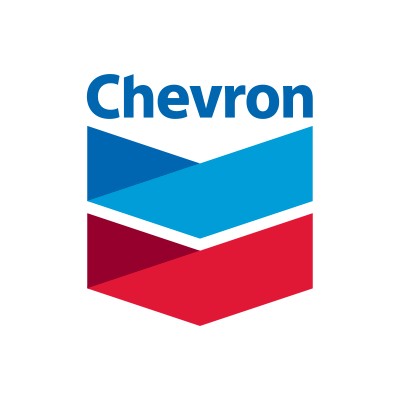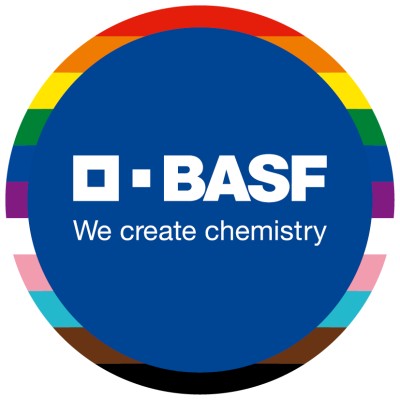QS Rank:

206

Queens University of Belfast

Belfast
,United Kingdom

Program Rank

125

Program Name
BEng in Chemical Engineering

Deadline
June 30th, 2026
Overview
The Bachelor of Engineering (BEng) in Chemical Engineering at Queens University of Belfast is an esteemed degree program designed to equip students with a profound understanding of the principles and practices of chemical engineering. This program stands out in the academic landscape, consistently earning high rankings on both national and global levels. Students can expect a robust curriculum that blends theoretical knowledge with practical application, setting the foundation for a successful career in various sectors.
The curriculum covers a wide range of topics, including thermodynamics, fluid mechanics, chemical reaction engineering, process control, and sustainable development. Advanced modules delve into subjects such as biochemical engineering, materials science, and process optimization. Each course is meticulously crafted to ensure that students not only grasp core concepts but also acquire the ability to solve real-world engineering problems. The program is structured to foster critical thinking, analytical skills, and team collaboration, all essential traits for future engineers.
The learning experience is significantly enhanced by the university's state-of-the-art facilities and well-equipped laboratories. Students are encouraged to engage in hands-on experiments and projects that simulate real-life engineering scenarios. This practical approach helps in bridging the gap between theory and practice, preparing students to tackle challenges in the field effectively. Additionally, the faculty at Queens University are experienced professionals and researchers who bring a wealth of knowledge and expertise to the classroom. Their teaching methodology emphasizes interactive learning, encouraging students to engage actively in discussions, collaborative projects, and research initiatives.
Research opportunities abound for students enrolled in the Chemical Engineering program. Queens University boasts a strong emphasis on innovation and research, providing students access to cutting-edge projects and collaborative research partnerships with industry leaders. This exposure not only enriches their academic experience but also enhances their employability by connecting theoretical knowledge with practical implementation. Students often participate in research that addresses pressing global challenges, such as sustainable energy, environmental protection, and health-related issues, contributing towards a better future.
Queens University’s strategic location in Belfast allows students to tap into a vibrant industry network. The university has established strong links with leading companies in the chemical and engineering sectors, providing ample internship and job placement opportunities. This connectivity not only facilitates practical learning but also enhances students' prospects of securing employment post-graduation. Graduates from the program have successfully transitioned into roles such as chemical engineers, process engineers, environmental engineers, and research scientists, with a commendable starting salary significantly above the national average.
Why Study Chemical Engineering at Queens University of Belfast
- Highly ranked program with global recognition, enhancing employability.
- Comprehensive curriculum covering both fundamental and advanced topics in chemical engineering.
- Access to cutting-edge laboratories and modern facilities for hands-on learning.
- Experienced faculty with industry connections, fostering a practical learning environment.
- Strong industry ties that facilitate internships, placements, and networking opportunities.
- A diverse and inclusive student body that enriches the learning experience through varied perspectives.
- Attractive scholarship options available, particularly for students from Northern Ireland.
The Chemical Engineering program at Queens University of Belfast comprises several key courses such as Thermodynamics, Fluid Mechanics, Chemical Reaction Engineering, and Process Control. The curriculum is designed to ensure that students gain a comprehensive understanding of the fundamental principles of chemical engineering, as well as advanced topics that prepare them for modern engineering challenges. The program emphasizes interdisciplinary learning, integrating aspects of physics, chemistry, and mathematics to tackle complex engineering problems.
Moreover, the faculty members are not only educators but also accomplished researchers who are deeply engaged in various fields of study. Their expertise ranges from sustainable chemical processes to advanced materials design. This ensures that students receive education that is not just current, but also forward-thinking and innovative. The teaching methodology is student-centered, promoting active engagement through problem-based learning, group projects, and interactive lectures.
Students are also encouraged to participate in research projects that align with their interests, which often leads to collaborations with industry partners. This research exposure is invaluable, as it enhances their understanding of theoretical concepts and their application in real-world scenarios. Facilities such as the Chemical Engineering laboratories are equipped with advanced technology that allows students to conduct experiments that reflect industry practices.
Career pathways for graduates of the BEng in Chemical Engineering are diverse and promising. Many alumni find themselves in roles such as Research Scientist, Petroleum Engineer, Manufacturing Engineer, and Quality Engineer, among others. The program also paves the way for further academic pursuits, including master's degrees and research positions. Alumni success stories highlight the program's effectiveness in preparing students for the workforce; many have secured positions in leading companies such as Pfizer, Siemens, and AstraZeneca, frequently citing the practical knowledge gained during their studies as a key factor in their employment success.
Admission to the Chemical Engineering program requires meeting specific eligibility criteria. Applicants must have five GCSEs at grade A*-C, including English Language, Mathematics, and a Science subject, as well as two A-Levels at grades A*-B in Chemistry and Mathematics. Candidates with a Higher National Diploma (HND) in Chemical Engineering or a related subject may also be considered for admission. Additionally, a well-prepared personal statement and strong letters of recommendation enhance an applicant's chances of acceptance.
Prospective students should also be mindful of the program's tuition fees, which amount to GBP 22,000 annually. Scholarships are available based on merit and financial need, providing financial support to eligible students. The application process typically includes submission of transcripts, personal statements, and letters of recommendation, along with standardized test scores such as IELTS or TOEFL for international applicants.
In summary, the BEng in Chemical Engineering at Queens University of Belfast offers a comprehensive and rigorous academic experience, making it an ideal choice for individuals aspiring to excel in the field of chemical engineering. The combination of an advanced curriculum, research opportunities, expert faculty, and strong industry connections creates a fertile environment for academic and professional growth. Graduating from this program not only prepares students for immediate employment but also equips them with skills and insights necessary for long-term career success.

Duration
36 Months

Median Salary
$42,500
Ranking

#295
US World and News Report

#198
The World University Rankings

#206
QS World University Rankings
Class Profile

Class Size
150

Average Age
20

Average Work Experience
0 Years
Career Outcomes

Median Earnings After Graduation
$42,500 / year

Job Placement
92%
Prospective Job Roles
Research Scientist
Petroleum Engineer
Teacher
Investor
Entrepreneur
Manufacturing Engineer
Government Official
Quality Engineer
Sales Engineer
Non-Profit Leader
Environmental Engineer
Research Engineer
Chemical Engineer
Process Engineer
Biochemical Engineer
Materials Engineer
Safety Engineer
Consultant
Top recruiters


















Eligibility Criteria
English Proficiency Tests
TOEFL
80

IELTS
6

Application Requirements
Here's everything you need to know to ensure a complete and competitive application—covering the key documents and criteria for a successful submission.

Transcript

Personal Statement

Academic LOR

Resume
Application Deadlines
| Regular | |
|---|---|
| Summer | Jun 30, 2026 |
| Spring | Jan 31, 2026 |
Fees and Funding

Tuition Fees
$22,000 / year
Funding Options
External Sources - Scholarships
Department Funding
Scholarships

The Northern Ireland Government
FAQs
- A student can complete Chemical Engineering at Queens University of Belfast with in 36.
- The application fee to pursue Chemical Engineering at Queens University of Belfast is GBP 22 for international students.
- The annual tuition fee to pursue Chemical Engineering at Queens University of Belfast is GBP 22000.
- The submission of these scores mainly depends on the type of degree/ course selected at the Queens University of Belfast. For example, the GMAT test is required to take admission to an abroad graduate management program, the LSAT is required during an abroad Law School admission process, and more. Therefore, check Queens University of Belfast requirements before submitting a score.
- Chemical Engineering can help Indian/ international students gain: 1. Quality and Practical Education 2. Global Recognition 3. International Exposure 4. Amazing Job Opportunities 5. Experience of Lifetime and more
- If a student fulfils all the eligibility criteria and admission requirements of Queens University of Belfast, they can easily pursue Chemical Engineering. The basic eligibility criteria include the following: 1. A GPA above 3 2. Well-written Statement of Purpose 3. An impressive Letter of Recommendation 4. A Work Experience Certificate (if required) 5. A Statement of Financial Proof 6. Academic Transcripts 7. Valid Visa, etc.
- An MS degree at Queens University of Belfast can usually be completed in 2 years. However, many universities offer a 1-year master’s specialisation as well. You can explore the official Queens University of Belfast website to check the course/ degree duration.
- One can apply for scholarships to pursue their international education at Queens University of Belfast by: 1. Looking for country-specific scholarships by contacting the specific scholarship institutions. 2. Applying to or finding out if any subject-specific scholarships are available from the university website/ department.









Ready to elevate your study abroad journey?
Book a call with us now and take the first step towards your global future!










